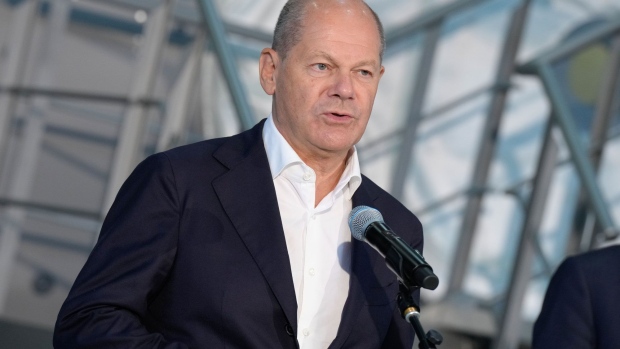Sep 12, 2023
German Coalition Bickering Overshadows Progress, Study Shows
, Bloomberg News

(Bloomberg) -- Germany’s ruling coalition is doing better than its reputation suggests, according to a study published Tuesday.
Chancellor Olaf Scholz’s three-party alliance — roughly midway through its term — has implemented or is in the process of fulfilling about half of the 453 pledges in its coalition agreement, while only 12% of voters believe it will achieve its goals, the study by the Bertelsmann Foundation, the University of Trier and the Berlin-based Progressive Zentrum think tank showed.
Its poor public image suggests government infighting is undermining its ability to communicate its progress, according to Wolfgang Schroeder, chairman of the Progressive Zentrum.
“Public coalition disputes lead to an underestimation of the government’s actual performance and commitment to implementation,” he said in an emailed statement. It “needs a reboot in its internal cooperation and self-promotion.”
For the study, Robert Vehrkamp of the Bertelsmann Foundation and Trier University’s Theres Matthiess analyzed the coalition accord sealed in December 2021 and its implementation up to Aug. 16. It’s also based on a July 7-19 survey of 1,011 people by the Allensbach Institute.
A further 62 pledges, or 14%, have been “substantially addressed,” but their “degree of fulfillment” can’t yet be accurately assessed, according to the study. A total of 162 promises, or 36%, including enshrining children’s rights in the German constitution, haven’t yet been kept or addressed.
Voter frustration with the alliance between Scholz’s Social Democrats, the Greens and the pro-business Free Democrats was underscored in an Ipsos poll that was also published on Tuesday. In a survey of 2,000 voters between Sept. 1 and Sept. 3, more than half were very unhappy with the government’s work, while only 7% were very satisfied.
©2023 Bloomberg L.P.








